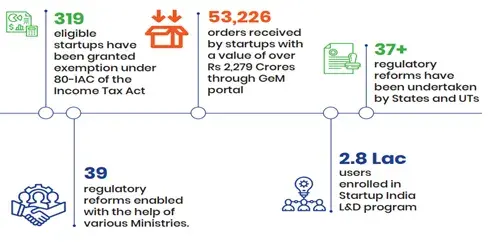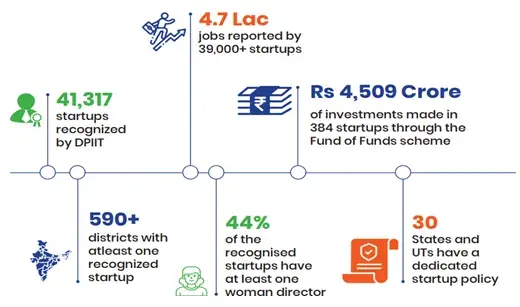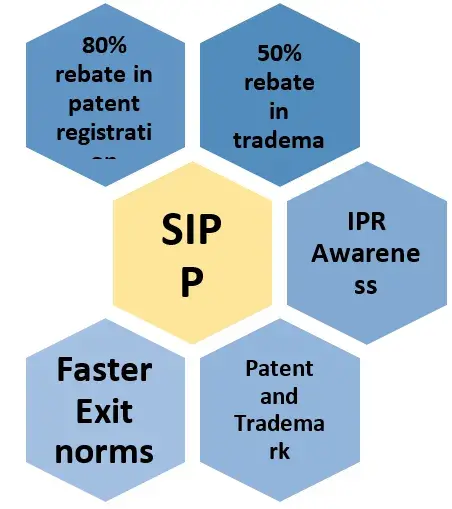CENTRE ISSUES GUIDELINES FOR IDENTIFICATION OF FAKE VACCINES.
 The Union Ministry of Health and Family Welfare, on September 05, 2021, issued guidelines to all States and Union Territories to identify fake vaccines being disseminated in the market. These guidelines have been published in the wake of a statement issued by the World Health Organisation last week wherein they averred to counterfeit versions of Covishield available in South-East Asia and Africa.
The Union Ministry of Health and Family Welfare, on September 05, 2021, issued guidelines to all States and Union Territories to identify fake vaccines being disseminated in the market. These guidelines have been published in the wake of a statement issued by the World Health Organisation last week wherein they averred to counterfeit versions of Covishield available in South-East Asia and Africa.
STATUTORY LICENSING UNDER COPYRIGHT LAW – SONY ENTERTAINMENT PVT. LTD. V. KAL RADIO LTD.
 The subject of statutory licensing of copyrighted material, is one which has been the subject of much debate over the last few years. As such, the same was also scrutinized in depth by the Department for Promotion of Industry and Internal Trade (DPIIT), which had made several proposals vide the Draft Copyright (Amendment) Rules, 2019 (please refer to our earlier article in this regard.
The subject of statutory licensing of copyrighted material, is one which has been the subject of much debate over the last few years. As such, the same was also scrutinized in depth by the Department for Promotion of Industry and Internal Trade (DPIIT), which had made several proposals vide the Draft Copyright (Amendment) Rules, 2019 (please refer to our earlier article in this regard.
LEGAL ACTION AGAINST FAKE ACCOUNTS ON SOCIAL MEDIA.
 Social Networking platforms are an extremely popular and useful communications tool in the digital age. Their growth has not only attracted advertisement and marketing agencies but also imposters who steal personal data and represent them as their own. These imposters are able to trick web users into divulging sensitive personal information.
Social Networking platforms are an extremely popular and useful communications tool in the digital age. Their growth has not only attracted advertisement and marketing agencies but also imposters who steal personal data and represent them as their own. These imposters are able to trick web users into divulging sensitive personal information.
Promoting and Protecting IP Rights in India: Exploring the evolving types of IP in Food Innovation and the IPR Benefits Given to Start-Ups in India.
 The advent of technological advancement and subsequent penetration of the internet in India, has led to mushrooming of food tech start-ups in India. The COVID-19 pandemic further catalysed the expansion of this sector in India.
The advent of technological advancement and subsequent penetration of the internet in India, has led to mushrooming of food tech start-ups in India. The COVID-19 pandemic further catalysed the expansion of this sector in India.
CENTRE ISSUES GUIDELINES FOR IDENTIFICATION OF FAKE VACCINES.

By Ragini Ghosh and Sanjana Kala
The Union Ministry of Health and Family Welfare, on September 05, 2021, issued guidelines to all States and Union Territories to identify fake vaccines being disseminated in the market. These guidelines have been published in the wake of a statement issued by the World Health Organisation last week wherein they averred to counterfeit versions of Covishield available in South-East Asia and Africa. The Union Health Minister of India has also issued a statement stating that the government is probing claims of fake Covishield vaccines being sold in the healthcare sector.[1]
According to reports, the Centre has shared a list of parameters based on label, colour and other details of the COVID vaccines that are currently being used for inoculation in the country[2], namely Covaxin, Covishield and Sputnik V, to confirm their authenticity.
The guidelines focus on various trade dress/ packaging aspects of the vaccine, in particular art work, colour scheme and placement of literature, as below:
Parameters to check the authenticity of Covishield vaccine
- Colour shade of the label on the Covishield vaccine is dark green, as per the approved art work;
- Colour of the aluminium flip off seal is also dark green;
- Brand name with trademark is mentioned on the original vaccine;
- The lettering on the vaccine is printed in special white ink to be clearer and more readable;
- The text font of the generic name is not in bold;
- The SII logo is printed at a unique angle and position which can only be identified by select persons who are aware of the exact details;
- The entire label has been given a special texture honeycomb effect which is visible only at a specific angle. To make it fool-proof, the honeycomb design has also been altered slightly at certain locations.[3]
Parameters to check the authenticity of Covaxin
- Invisible UV helix on label which is only visible under ultra-violet light;
- Micro text hidden in label claims Dots (written as Covaxin);
- Holographic effect has been given on the name Covaxin, and the ‘X’ of the name features a green foil effect[4]
Parameters to check the authenticity of Sputnik V
- Since the imported products are from two different bulk manufacturing sites in Russia, there are two different labels corresponding to both these sites. All the information and design/ artwork is the same, however, the manufacturer name is different;
- Imported products till now have only the English label available on the front and back of the carton of 5 ampoule packs;
- All the other sides, including the primary label on the ampoule, is in Russian.[5]
Recently, we analysed how the pandemic has seen a rise in instances of fraud and counterfeiting perpetuated by online channels and on social media hereThe rise of online vaccination scams[6] and hereCovid scams on social media[7]. However, with over 686 million doses administered till now[8], India’s cumulative vaccination coverage has resulted in the daily case count dropping and the infection curve flattening.
While the way forward is not easy, given the sheer population to be inoculated, coupled with other hurdles to vaccination, including general suspicion of the vaccine in rural areas, the need of the hour is to now educate and disseminate the necessary information through health workers and government employees engaged in administering/ delivering the vaccine to citizens so that the virus can be effectively combated and eliminated swiftly.
[4] Ibid
[5] Ibid
[6] https://ssrana.in/articles/online-vaccination-scams-india/
[7] https://ssrana.in/articles/covid-scams-social-media/
[8] https://www.bbc.com/news/world-asia-india-56345591
Related Posts
COVID SCAMS ON SOCIAL MEDIA- THE ANTI-SOCIAL NETWORK
STATUTORY LICENSING UNDER COPYRIGHT LAW – SONY ENTERTAINMENT PVT. LTD. V. KAL RADIO LTD.

By Pooja Thakur and Pranit Biswas
The subject of statutory licensing of copyrighted material, is one which has been the subject of much debate over the last few years. As such, the same was also scrutinized in depth by the Department for Promotion of Industry and Internal Trade (DPIIT), which had made several proposals vide the Draft Copyright (Amendment) Rules, 2019 (please refer to our earlier article in this regard at https://ssrana.in/articles/internet-broadcasting-statutory-license-section-31d-copyright/).
The issue of statutory licensing under copyright law has now once again come under the public lens, due to the recent legal tussle between the global media and entertainment behemoth, Sony, and KAL Radio. Sony dragged KAL Radio before the Hon’ble Bombay High Court, inter alia alleging infringement of broadcasting rights.
THE PLAINTIFF
The Plaintiff in this case is Sony Music Entertainment India Private Limited (‘Sony India’), a part of the famous global entertainment and electronics conglomerate.
Sony India is the owner of, inter alia, various sound recordings and other media.
The Defendant No. 2 in this case is Sony Music Entertainment (“Sony Music”), a New York-based music label which acquires, owns and controls copyright in various works and distributes music in various genres. Sony India is Sony Music’s exclusive licensee in India for the international music and sound recordings in which Sony Music has copyright. As noted by the venerable Justice Mr. Gautam Patel in his Order dated June 18, 2021, the above is Sony India’s “international repertoire”. Sony India was a member of the controversial Phonographic Performance Limited (“PPL”) prior to 2010.
THE DEFENDANTS
The Defendant No. 1 in this case is KAL Radio, an Indian Broadcaster, under the meaning of the Copyright Act 1957. Kal Radio used to broadcast copyright works of Sony India under licenses obtained from the PPL.
POINT OF LAW IN CONTENTION
Section 31(D) of the Copyright Act, 1957, which provides for statutory license for broadcasting of literary and musical works and sound recording. As per the section, a license entails a notice in the prescribed form to the holder of copyright, and payment of a fee (including an advance, if so ordered).
Such notice must include various pertinent things, such as, inter alia, names of the programmes in which the copyright protected works are to be included, details of time-slots, durations and period of programmes, etc.
The main point of contention herein is the interpretation and the manner of applicability of Section 31-D of the Act and Rule 29 of the Rules, and its rigidity/ strictness.
OTHER LEGAL TUSSLES REGARDING SECTION 31(D) AND LICENSING
As readers may be aware, The Copyright Board in 2010, determined a license fee in regard to the compulsory licensing regime under Section 31 of the Copyright Act. Many broadcasting organisations had sought statutory licenses by filing applications with the erstwhile IPAB under Section 31-D read with Rule 31 of the Copyright Rules 2013. The IPAB, on December 31, 2020, had determined royalty rates applicable for such licensing. However, there is pending litigation about the said Order of IPAB before the Delhi High Court.
FACTUAL BACKGROUND
As noted earlier, Kal Radio used to broadcast copyright works of Sony India under licenses obtained from the PPL.
However, KAL Radio in February 2021 had sent an email to Sony India, inter alia seeking information about its copyrighted works, to which Sony India has replied that the copyrighted works in question have been a part of KAL Radio’s broadcasts for years, but nevertheless, a list was provided to the Defendant. Thereafter, KAL Radio purportedly sent a ‘Notice’ to Sony India on February 12, inter alia claiming an entitlement to a statutory license and forwarding a payment of INR 64,750, which was, as noted by Justice Patel, quantified without basis and was bereft of the details that Section 31-D contemplated. Thus, Sony India promptly returned the cheque to them, and asked them to comply with the Rules. Thereafter in early March 2021, it came to Sony India’s notice that they are broadcasting copyrighted sound recordings from Sony India’s ‘Indian repertoire‘. Thereafter, KAL Radio had sent another cheque to Sony India on March 9th, 2021.
Another pertinent factum of this case is that Sony India per se did not refuse the license, rather, they asked KAL Radio to comply with the Rules.
THE PLAINTIFF’S ARGUMENTS AND RELIEF SOUGHT
In view of the above background, Sony India filed a suit for copyright infringement, seeking injunction and damages, as the KAL Radio had been broadcasting Sony India’s copyrighted work without a valid license.
THE DEFENDANT’S ARGUMENTS
The Defendant’s primary argument in this case was that the scheme of Section 31-D entitles a broadcasting organisation to use the works ‘the moment it sends a notice and payment’ and that balance of convenience is in their favour. The Defendant further argued that there has been ‘sufficient compliance’ with Rule 29 of the Copyright Rules.
COURT’S HOLDING AND REASONING
The Court held in favour of the Plaintiff and granted a time-limited ad-interim injunction in terms of prayer clause (a), and the reasoning of the court is explained below:
- KAL Radio did not have a statutory license, and the notice as sent to Sony India, was not fully compliant with Section 31D and Rule 29. The notice did not even contain names of programmes, details of time slots, and duration of period of programmes, which are a compulsory prerequisite under Rule 29. KAL Radio did not have a logical or apparent basis of its royalty computations as well.
- Strict compliance of the Act and the Rules are necessary, and one cannot just get by making ‘sufficient’ compliance.
CONCLUSION – THE TAKEAWAY
The major takeaway from this order is that the Court considers strict/rigid compliance with Section 31D and Rule 29 to be an essential component of statutory copyright licensing. Mere sending of a notice to a right holder, does not grant the party a right to use the copyrighted works of the owner. There has to be strict/ complete compliance with the prerequisites, to get a statutory license. This is especially important as such statutory licensing in essence deprives a copyright-owner of the freedom of choice in licensing, and thus has to be exercised under strict/right conditions and protocols.
This recent order of the Bombay High Court has struck a valuable balance between the rights of the copyright owners and public interest. While statutory licensing, in the eyes of many, remains to be a rather harsh aspect of IP jurisprudence, one which deprives the exclusive rights of copyright owners, this is a case which would instil some semblance of confidence in the minds of rights owners – that at least there has to be strict compliance with the requisite laws, to get a statutory license.
This would also hopefully embolden right holders of other countries, to bring their craft to India, secure in the knowledge that statutory licensing is one which can only be exercised with strict/rigid conditions. This case may also have a persuasive effect on many other such similar pending litigations. In this regard, you may refer to our earlier articles on this topic at https://ssrana.in/articles/internet-broadcasting-statutory-license-section-31d-copyright/ and https://ssrana.in/articles/internet-broadcasting-and-section-31d-of-copyright-act-1957/.
LEGAL ACTION AGAINST FAKE ACCOUNTS ON SOCIAL MEDIA.

By Arpit Kalra and Ragini Ghosh
Social Networking platforms are an extremely popular and useful communications tool in the digital age. Their growth has not only attracted advertisement and marketing agencies but also imposters who steal personal data and represent them as their own. These imposters are able to trick web users into divulging sensitive personal information.
FAKE ACCOUNTS ON SOCIAL MEDIA AND THEIR IMPACT
A fake account is essentially an account on any social media platform where the displayed details are actually dishonest, or even fraudulent. Misrepresentation on fake accounts, using fake details mislead the general public, into disseminating inaccurate information, or collecting financial or personal details.
As per the data collected in 2019 by Swedish e-commerce start-up A Good Company and analytics firm HypeAuditor which included the assessment of more than 1.84 million Instagram accounts across 82 countries, the top three markets with the highest numbers of fake accounts were the United States (49 million), Brazil (27 million), and India (16 million). Moreover, as per Facebook’s enforcement analytics report, it is estimated that about 5% (i.e. close to 90 million) profiles on their platform are fake.
TYPES OF FAKE-ACCOUNTS AND WHAT THEY ARE USED FOR
Different kinds of fake accounts can be found on social networking sites. Most fake accounts are made using the information provided by other users, without their knowledge. These accounts are usually used by imposters to attain sensitive information such as credit card details, other financial details, or personal information from users.
It is reported that another set of fake accounts are created by political parties and corporations to influence media trends. These accounts are usually created by bots which imitate human behavior, in order to promote a particular ideology or product. There have been several instances wherein these accounts continuously use hash tags and repost content to increase their visibility and popularity.
Many celebrities have also reported fake accounts that are being used in their name. Such accounts use the personal data and information of a celebrity to create a seemingly official account. Imposters use these fake accounts to cheat and defraud lay fans/supporters.
REGULATION BY SOCIAL MEDIA PLATFORMS AGAINST FAKE ACCOUNTS
There is no specific law in place that holds social media platforms liable for the creation of fake accounts within their network. This is because the network only acts as an intermediary and does not directly create the account. The safe-harbor immunity given under Section 79 of the Information Technology Act, 2000, protects intermediary social media networks from liability for content posted thereon by third parties. Under Section 79 of the Information Technology Act, 2000 an online portal which acts as an intermediary i.e only receives, stores, transmits or communicates an electronic record will not be liable for any third-party information or communication that is available on it. However, the provisions state that upon receiving ‘actual knowledge’ that any information, data or communication link residing in the portal is used to commit an unlawful act, then the intermediary becomes liable to take such content down. Unfortunately no clarity has been provided with regard to what constitutes ‘actual knowledge’. Although the Shreya Singhal[1] case required a ‘court order’ to be considered as actual knowledge, the Delhi HC in MySpace[2] case removed this need with regard to removal of content.
The Information Technology (Intermediary Guidelines and Digital Media Ethics Code) Rules 2021 has incorporated various regulations intended to be helpful in combating the nuisance of fake accounts. Under these guidelines, every social media site has the responsibility to set up a grievance redressal mechanism wherein complaints can be lodged against any content available on that site. Under rule 3(2)(b) if the intermediary upon the receipt of complaint, finds that the impugned content is in the nature of impersonation in an electronic form, including artificially morphed images, then it shall take all reasonable and practicable measures to remove or disable access to such content which is hosted, stored, published or transmitted by it. These guidelines and the grievance redressal system set up under it would be supportive for users to report fake profiles. The guidelines also state that intermediaries are required to report cybersecurity incidents and share related information with the Indian Computer Emergency Response Team.
An additional responsibility is placed upon significant social media intermediaries, who have more than 50 lakh registered users in India. These websites are required to (i) appoint an additional chief compliance officer who ensures that the websites are acting in compliance with the IT act (ii) appoint a grievance officer who resides in India and (iii) publish a monthly compliance report with the necessary information.
Most platforms, within their Terms of Use, have provisions against impersonation and can take action when a profile is not being operated by the persons themselves. All major social media platforms such as Facebook, Instagram, Snapchat, etc. provide an option for users to report profiles that are fake or participating in unlawful activities. This system does not assure that all reported profiles will be removed, however investigations are launched to cross-check the authenticity of reported profiles. Furthermore, some websites such as Facebook have set up their own verification and enforcement agencies with the aim of identifying and removing fake accounts.
Social media websites are also improving their system by employing various verification methods that provide credibility to genuine and authenticated profiles. This allows users to differentiate between fake and real profiles and further allows the platform to identify potentially impersonating/fraudulent profiles.
LAW GOVERNING FAKE ACCOUNTS
Every day there are several persons who become victim to various offences committed by imposters. These victims have the right to report such instances as the attackers are in violation of various provisions of the Indian Penal Code (fraudulent impersonation is a statutory offence) and the Information Technology Act, 2000.
The most relevant section for fake accounts is Sec 66D of the IT Act which states that:
“Whoever, by means of any communication device or computer resource cheats by personation, shall be punished with imprisonment of either description for a term which may extend up to three years and shall also be liable to a fine which may extend up to one lakh rupees”. Moreover Sec 66C of the Act states that “Whoever, fraudulently or dishonestly make use of the electronic signature, password or any other unique identification feature of any other person, shall be punished with imprisonment of either description for a term which may extend to three years and shall also be liable to fine with may extend to rupees one lakh.”
In case of fake accounts that are used to cheat others by appropriating the personal information of other users without their consent or by using made-up personal details, the creator can be held liable under Section 416 of the IPC which deals with cheating by personation. The provision states that a person is said to ‘cheat by personation’ if he cheats by pretending to be some other person. The imposter would be held guilty whether the individual personated is a real or imaginary person. Under Section 468, any person who commits forgery of an electronic record for the purpose of cheating would also be held guilty.
NEED FOR REFORM
The Information Technology (Intermediary Guidelines and Digital Media Ethics Code) Rules, 2021 is a welcome step towards protecting the interests of users in various social media websites. The guideline specifies that complaints must be acknowledged within 24 hours and disposed of within 15 days. However modifications need to be introduced to improve the application of criminal provisions to electronic offences. Moreover, social media networks need to increase their vigilance in detecting fake profiles and they must be held responsible to ensure authenticity of information available on the platform.
[1] 2013 12 SCC 73
[2] MANU/DE/3411/2016(Delhi HC)
Related Posts
Social Media Influencer – Legal Implications
Promoting and Protecting IP Rights in India: Exploring the evolving types of IP in Food Innovation and the IPR Benefits Given to Start-Ups in India.

“Never dream of becoming something, if you dream, dream of doing something.”…PM Narendra Modi
In India, the Start-up Initiative was envisioned by Prime Minister, Narendra Modi during his speech on August 15, 2015, and subsequently was launched on January 16, 2016. Since the inception of the initiative, start-ups in India have flourished and these innovative, adaptive and technology-driven entities have made their imprint in the Indian economy. The same was duly acknowledged by PM Modi recently when he remarked that the start-ups have changed the demographic character of India and that while the world struggled, an army of start-ups came up in India during the COVID-19 pandemic. According to statistics at present, there are 45,107 Department for Promotion of Industry and Internal Trade (DPIIT) recognized start-ups in India[1].
START-UP INDIA IN NUMBERS[2]
From January 2016-December 2020


Start-Ups in the Indian Food Industry: The Rise of Alternative Protein Innovation
The advent of technological advancement and subsequent penetration of the internet in India, has led to mushrooming of food tech start-ups in India. The COVID-19 pandemic further catalysed the expansion of this sector in India. As a result, food tech start-ups have emerged as one of the most viable platforms for food and grocery delivery services in India. A report by the DigitalFoodLab[3], indicates an increase in investments in food tech start-ups in India. Similarly, the Indian Food processing industry is also growing by leaps and bounds and Indian Food start-ups are playing an instrumental role in transforming the whole food industry landscape in India.
Innovation in food Technology and Evolution of Smart Protein
Smart protein is an emerging innovation in food technology that addresses multiple concerns ranging from sustainability, consumer demand for protein, animal welfare, food security, etc. Since 2015, more than thirty-five companies have emerged in the smart protein sector in India. ‘Smart protein’ also known as ‘alternative protein’ are products which can reliably and predictably substitute animal derived meat, eggs and dairy by replicating the sensorial and organoleptic properties of traditional meat, eggs and dairy. [4] Innovators create these products directly from plants, cells or microorganisms.[5] The products fall under three main categories:
- Plant-based Protein- Plant-based protein meat, eggs and dairy products where the proteins are derived from plant sources such as the Impossible Burger, Beyond Burger or plant-based chicken nugget or peanut curd in India.
- Cultivated Protein- Cultivated protein products are produced by cultivating a sample of animal cells and bypassing the raising and slaughtering of animals to produce meat and meat products. Cultivated Meat is also known as ‘cultured’, cell-based’, and clean meat in other countries.
- Fermentation derived protein- Fermentation derived foods such as dahi, idly, yoghurt are not new to India, but proteins that are derived from biomass fermentation or precision fermentation is a relatively novel process that is currently emerging in India.
The growing innovation in the alternative protein industry is attracting financial growth and investor support in India and worldwide. Due to this growing interest, there is a great potential for individuals and companies looking to invest their resources, time and effort in alternative protein. Due to the vast financial investments and innovative efforts in this relatively new industry, there are various Intellectual Property Rights considerations and how they can be protected.
SIPP SCHEME AND IPR BENEFITS FOR START-UPS IN INDIA
Startups Intellectual Property Protection (commonly known as SIPP) aims to promote awareness and adoption of Intellectual Property Rights amongst start-ups. This Scheme is inclined to nurture and mentor innovative and emerging technologies among startups and assist them in protecting and commercialising it by providing them access to high quality IP services and resources[6]. The Start-Up Action Plan released on January 16, 2016 envisaged several benefits for start-ups in India and one such benefit was the IPR benefits and facilitation for start-ups in India.

Hence, one of the action points was to promote awareness and adoption of IPRs by start-ups and facilitate them in protecting and commercialising the IPRs by providing access to high-quality intellectual property services & resources, including fast-track examination of patent applications and rebate in fees.
IPR Benefits for Start-Ups in 5 years- in numbers
A booklet released by the Government capturing the 5-year story of start-ups in India reports that there has been an 87% increase in IPR registrations by Start-Ups over a period of 3 years (2017-2020).
It also provides that[7]:
- 5,020 patent applications have been filed
- 1,170 patent applications filed for expedited examination by start-ups; of these 884 applications have been examined and 459 patents have been granted
- 12,264 trademark applications have been filed
- 510 patents and designs facilitators and 392 trademarks facilitators empanelled under the sipp scheme.
Start-Up Registration for availing IPR Benefits
In order to claim benefits under the SIPP Scheme it is mandatory for the start-up applicant to possess Certificate of Recognition from DPIIT (earlier DIPP). The Certificate of Recognition shall be submitted with the Indian Patent Office (IPO) at the time of filing patent, design or trademark application[8].
Empanelment of IP Facilitators
Prior to the introduction of the SIPP Scheme and subsequent empanelment of IPR Facilitators under the Scheme, the start-ups often suffered from inadequate guidance from lawyers and agents who were not proficient in IP laws and drafting of patent applications. However, after the appointment of IPR Facilitators for effective implementation of the Scheme, the start-ups can take assistance of qualified IPR professionals for filing and prosecution of their IPRs and they also do not have to pay any fee to the IP Facilitator, as they are paid nominal professional fee directly by the Government through the office of the Office of the Controller General of Patents, Design and Trademarks (CGPDTM). However, official/statutory fee for filing patent, trademark and design application shall be borne by the start-up itself.
IPR Benefits for Start-Ups
- Reduction in cost in IP filings-There is 80% reduction in the cost of filing patents in India. Patent and Design application filed under start-up category (DPIIT recognized) i.e. start-up as the applicant, the applicant has to bear only the official fee/statutory fee incurred for filing patent and design application with the Indian Patent Office till registration of the design. No professional charges are required to be paid. The government will bear all facilitator fees.
- Fast-tracking of patent applications is possible by filing a “Request for Expedited Examination” which mandates the Controller to issue the First Examination Report (FER) within 105 days when the expedited examination request is accepted. Granting of patents is expedited and reduced to less than a year from five to seven years.
- Easy Access to funds: The government has set up a ₹ 10,000 crore fund to the start-ups as venture capital. The government is also giving guarantee to the lenders to encourage banks and other financial institutions for providing venture capital.
- Tax exemption: Start-ups will be exempted from income tax for 3 (three) years subject to providing certification from Inter-Ministerial Board (IMB).
- Relaxation in public procurement norms: A DPIIT registered start-up may bid for government contracts with fewer eligibility requirements. They are exempted from the “prior experience/turnover” criteria applicable for normal companies answering to government tenders. That is a start-up can avail exemptions on Earnest Money Deposit (EMD); prior turnover and experience which are generally required while applying for government tenders.
- Self-certification: Any private limited company, per law, is ordinarily bound by labour and employment laws and therefore, officers are required to inspect the company concerning the registration of establishments, maintenance of establishment in terms of safety norms, compliance with employee beneficial norms like payment of gratuity, and insurance cover. However, start-ups are allowed to self-certify their compliance under six labour laws and three environment laws. This benefit is allowed for five years from the date of incorporation of the entity and is given to reduce the regulatory burden for start-ups so that they can focus on their core business and keep compliance costs low.
- Easy Winding Up of Company: Start-ups also known as fast track firms can be wound up within 90 days as against 180 days for other companies
Undeniably, the food start-ups sector in India is all set to witness unprecedented growth and huge investments await their way. However, this sector booming with ideas and concepts shall take cautious steps in protecting their ideas and statutorily protect their Intellectual Property Rights. The Indian Government under the start-up India initiative is taking several steps to make the ecosystem more conducive for filing and protection of IPRs by start-ups and figures indicating an increase in IPR filing by start-ups is a testimony to the same.
[1] https://www.startupindia.gov.in/
[3] https://www.digitalfoodlab.com/foodtech-in-india/
[4] The Good Food Institute India
[5] https://gfi.org/advancing-solutions-for-alternative-proteins/
[6] https://ipindia.gov.in/writereaddata/Portal/News/323_1_Scheme_for_facilitating_start-ups.pdf
[7] ibid
[8] The Trademark Rules, 2017 provides that an entity fulfilling the criteria of a startup shall provide a declaration to that effect. The Rules can be accessed here- https://ipindia.gov.in/TM-Rules-2017.htm
[9] https://www.startupindia.gov.in/content/sih/en/startup-scheme.html
For more information regarding benefits for Start-ups for building an IPR portfolio, please write to us at: info@ssrana.com
Related Posts
Food Packaging & Labelling Law

